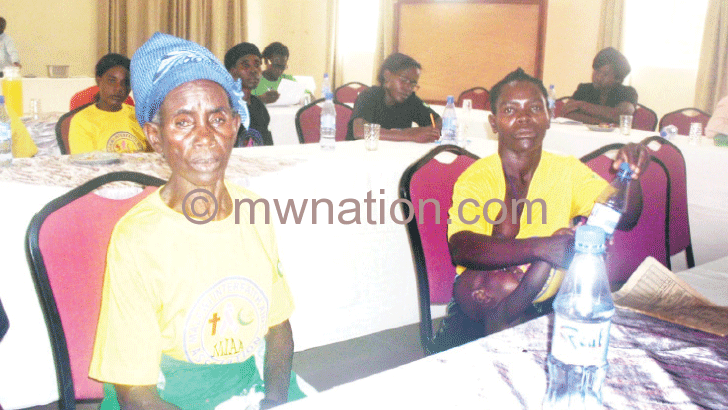Searching for justice
Florence Banda from Kalembajasi Village, Senior Group Village Head (SGVH) Kachenje in Traditional Authority (T/A) Kawamba in Kasungu has a farmland dispute with her neighbour. She is accusing her neighbour of abandoning the original boundary demarcating the two farmlands and has started encroaching into her piece of land.
The aggrieved Banda decides to take the matter to SGVH Kachenje for redress. But the traditional leader tells her off, saying she cannot have her case heard at his court before she contributes two chickens and maize flour to be used to prepare a meal for over 10 elders who the chief would summon to hear the matter.

Since she does not have the items demanded by SGVH Kachenje for her complaint to be heard before the traditional court, Banda decides to take the matter to T/A Kawamba’s chamber.
But alas, she faces similar tune, stiffer than what SGVH Kachenje had earlier demanded from her.
Banda is asked to bring a crate of soft drinks for the elders who are to discuss the matter. On top of that, she is asked to provide money for fuel to enable the District Commissioner (DC) to drive from town, about 100 kilometers away, to come and sit with the elders in the village to help address her problem.
She says they told her to solve the dispute she had provide money for fuel for the DC to come. here, as chief executive of this district, I am told.
“As poor as I am, do you think I can manage to provide food and soft drinks for over 10 people to have my case heard before the traditional court? After all in this case, I am the one who is aggrieved,” complains Banda.
Banda is but one of many subjects of T/A Kawamba that failing to seek justice before traditional courts whenever they have been aggrieved, due to high poverty levels, they cannot manage to provide meals, drinks and fuel for authorities to hear their cases.
Issues of poor people such as Banda failing to seek justice before traditional courts were exposed following advocacy campaigns Malawi Interfaith Aids Association (Miaa) with assistance from Oxfam, conducted early December last year at community level in the five GVHs in T/A Kawamba, thus Senior Group Village Headmen Selenje, Kachenje, Kawambamwale, Chidelezi and Diwala.
The main aim of the campaign was to find common issues that hinder People Living With HIV (PLHIV), especially women, from accessing quality health care and agri-based services.
Apart from obstacles they face whenever they want to seek justice before a traditional court, some people complained of empty promises made by some non-governmental organisations (NGOs) who ask the community to gather sand and rocks for construction of boreholes, but do not fulfil their promises, whereas on paper it shows availability of boreholes in such particular communities.
The advocacy campaigns also revealed, among other things, irregular availability of bactrim (the drag that is provided alongside ARVs) in the health facilities, lack of potable water, discrimination against people living with HIV by household members and other relatives, indigenous people castigating those who settle as strangers and gender based violence.
Considering all these challenges, Miaa with Oxfam conducted a district interface meeting, recently in Kasungu, bringing together duty-bearers and service providers that included the District Commissioner’s office, District Health Officer, T/A Kawamba herself, Senior Group Village Head Selenje, Kachenje, Kawambamwale, Chidelezi and Diwala, District Agriculture Development Officer, the Police, and Member of Parliament for T/A Kawamba and rights holders so that the identified challenges could be resolved thoroughly on a mutual understanding.
Taking her turn, T/A Kawamba, while admitting that it was true that such practices of asking the aggrieved to provide food and drinks for elders if they wanted their issues to be heard before the traditional court were true, said from now on, she would make sure that no chief under her authority would repeat such practice.
Lucius Njovu, Kasungu district Aids coordinator said it was not true that his office places demands such as asking the aggrieved to provide fuel if the DC himself was to intervene on any matter, particularly to do with land disputes.
He claimed such demands may have been coming from the traditional leaders, but not from the DCs office.
Njovu expected sanity to prevail following ironing out of all grey areas following the interface meeting.
But Member of Parliament (MP) for Kasungu West, Alex Major, who during the meeting was also accused by T/A Kawamba of abandoning his constituency since elected to Parliament, backed the chiefs saying it was a tradition that every subject with a complaint before a traditional court, has to provide food before the matter is looked into.
On his part, Major dismissed T/A Kawamba’s claims as untrue that he does not have the welfare of his constituents at heart saying every time he is going for Parliamentary session, he consults his constituents. n





